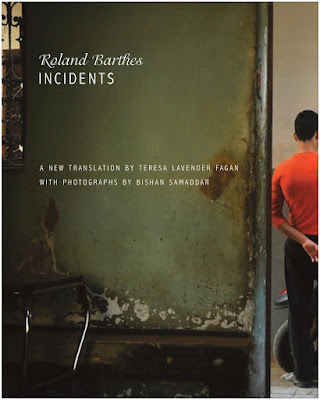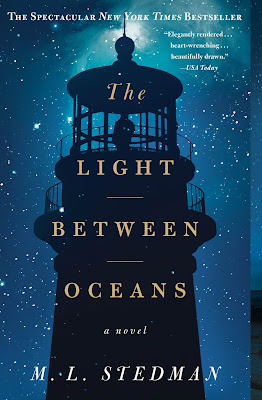"Incidents" by Roland Barthes (published 2010)
“Incidents” by Roland Barthes is a book containing excerpts
of deeply personal journal entries written by the French philosopher in Morocco
and France during the 1960s and 1970s. They were published posthumously, and
provide unique insight into the uninhibited mind of this thinker. His work is
mostly academic, but “Incidents” reminds us that he was not only a theorist,
but he was human, too.
Barthes - *you creep* - ran through my head many times as I
read this – for all his looking he doesn’t seem to feel shame at watching
others either, particularly others who may not have as sharp faculties as he
had. That being said, I never once felt awkward or uncomfortable reading “Incidents”.
Perhaps he did feel, if not shame, than a frustration at his addiction to
watching, to yes, I would even say judging, people by their actions as well as appearances
– this one dirty, this one handsome, this one knew what he was talking about,
this one lying… keep in mind that Barthes was “studying” – with a very, very
sharp eye - what some may call the oppressed. But - I will admit that many,
many parts made me smile wide and laugh, like an active participant in his actual
life:
“The ‘head accountant’ (a sweet-looking teenager), in a
serious tone, declares: ‘Civilization is when people know their rights and are
aware of their duties.’ After which, like all of us, he bursts out laughing.”
And this, I definitely laughed at this:
“The little Marrakesh schoolteacher: ‘I’ll do anything you
like,’ he says effusively, his eyes full of kindness and complicity. And this
means: *I will fuck you*, and nothing else.”
And it is laughter all the more sweet because it is tinged
heavily with sadness. My favorite parts of “Incidents” were the rare, keen
descriptions of objects and place, and even people, but not his interactions
with them. Barthes struggles with his almost uncontrollable homosexual desire. And
it seemed to me that Barthes had a deep fear of being alone, so when he did
write about scenes without people there was something very clarifying about it.
I’ll end with something he wrote in the chapter: “The Light
Of The Southwest” (France):
“I believe the writer exists in this vestibule of knowledge
and analysis: having more awareness than experience, aware of the very cracks
in experience.”
Also:
“…don’t try to photograph it: to judge it, to love it; you
have to come and stay, so you can experience the range of places, seasons,
weather and light.”




Comments
Post a Comment